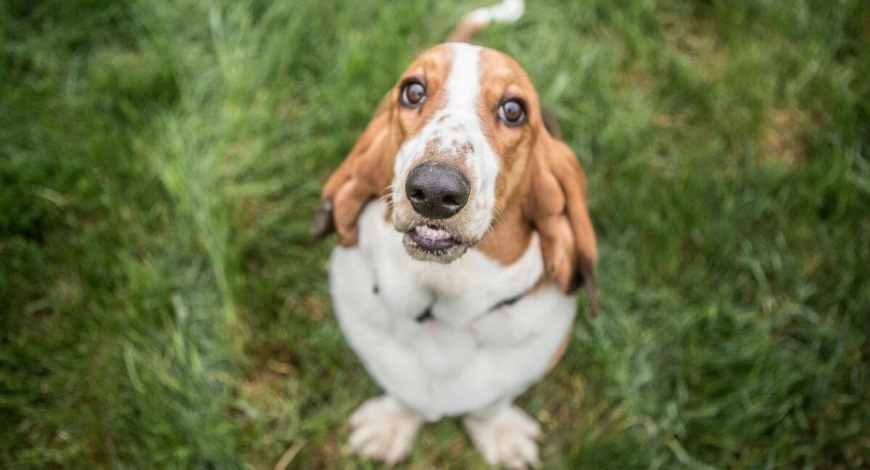Holding on to see You, My Dear Dogs

Having been a hospice nurse for over a decade, I have witnessed many patients take their final breaths. While all deaths are significant in their own unique ways, some of the deaths I have experienced are memories that I will carry with me always. Most people who work in hospice or palliative settings would probably be able to tell you of a time that they witnessed a patient seemingly wait or hold on for a specific time to pass. It doesn’t happen every day, but it does happen often enough, and it can be truly beautiful to see.
Several years ago, I was caring for a patient named Maggie (name and identifying details changed to protect privacy) on a hospice inpatient unit. In hospice, we tend to see that friends and family start gathering and visiting more often as their loved ones decline and reach closer to the end-of-life. We see a broad range of family structures and some patients simply do not have many supports left in their lives. Maggie was in her eighties and did not have what most would consider a traditional family. She did not have children, siblings, or nieces or nephews and she had very few visitors coming to see her.
Maggie did have a close and trusted neighborhood friend, Beth, who would visit intermittently. When Maggie was admitted to our hospice inpatient unit due to her declining status, Beth took over the care of her two beloved basset hounds Ruby and Haddie into her own home and brought them into the facility for daily visits. Maggie was not very outgoing. She was not rude or unpleasant, but it was clear she liked to keep to herself most of the time and was usually quiet and pensive without much expression. When the clanking and jingling of her dog’s harnesses could be heard coming down the hallway towards her room, she lit up and became a whole different person. Ruby and Haddie would get lifted into the bed with Maggie and she would rub their long, floppy brown and white ears and squish their wrinkly faces. She became much more engaged and conversational, and you could tell she was beaming with pride talking about her dogs. They were a part of who she was as a person, and they were what brought her joy; they were her family.
In a general sense, Maggie was declining from day to day at a gradual place. She was eating less and she was having more trouble breathing during simple tasks and transfers, which was to be expected with her particular disease progression. She was slowing down and spent much of the day sleeping, watching TV, and snuggling her dogs in her hospital bed. Many hospice patients slowly and steadily decline but sometimes, sudden, unexpected events can occur which alter the course.

When the clanking and jingling of her dog’s harnesses could be heard coming down the hallway towards her room, she lit up and became a whole different person.
I was charting at the nurse’s station when the CNA from my unit came to get me reporting that Maggie was very short of breath. Periods of shortness of breath and intermittent breathing crises can be common in hospice populations, but it was clear to me that this was different. Maggie was gasping for air, clutching her chest, and she was blue. Although we do not do complete official, diagnostic tests or work ups, she was most likely having some sort of respiratory or cardiac event such as a heart attack or a blood clot occluding her airways.
Maggie could barely speak, but she managed to squeak out, “I need to see my dogs.” I truly believe that some people know for certain that death is imminent, and Maggie knew she was fading fast. I asked a fellow nurse for help to administer medications to reduce Maggie’s discomfort as I ran to the nurse’s station to call Beth. It is never easy to update a friend or family that someone is declining, especially in a crisis. Beth understood the severity of the situation and let me know she would drop everything and make her way in as soon as possible. I returned to Maggie’s room and continued to assess her symptoms and give her medications to relax her breathing and reduce anxiety. The CNA and I redirected her, held her hand, and tried to keep her calm and focused; we kept softly telling her over and over that Ruby and Haddie were on the way.
While it felt like forever, Beth quickly arrived with Ruby and Haddie in tow within fifteen minutes of my call. The familiar sound of the clanking and jingling harnesses coming down the long hallway could be heard by Maggie, and she opened her eyes slightly. Maggie’s breathing was more relaxed than it had been, but her body was still in overdrive and her breaths were tiny and frequent. Beth entered the room and lifted the basset hounds onto the bed. Animals have an amazing sense for what their humans need. Ruby and Haddie snuggled in under each arm and laid their heads down across her chest; Maggie gave them a little pat, closed her eyes, and took her last breath. She had waited for her family to arrive.
Ruby and Haddie quietly laid with Maggie for over an hour after she passed while we waited for the funeral home to arrive. It was easy to recognize that something had shifted and that they knew their human was gone. They seemed to have a saddened look on their faces, not unlike a human would after such a loss. No matter how well they would continue to be cared for by Beth, I am certain they went through a grieving period while they adjusted to life without Maggie. That is just the cost of being loved and loving others.
Just as there are a variety of ways to enter into this world, there are many ways people leave it. Some patients truly seem to wait for everyone in the room to step out, some patients seem to wait for a certain person to arrive. Some people wait for a certain date to arrive some people wait until after a certain event has already occurred before passing. The strength of people at the end-of-life can be so astounding. I will forever remember this particular death because of the beauty in the timing and Maggie’s perseverance to hold on until she could see her beloved basset hounds once more.
Contact Unity 24/7 if you have any questions or call Unity Hospice at 800-990-9249 to learn more about how we can support you.
This blog post was shared by Keri S., a Registered Nurse at Unity Hospice.
If you found this information helpful, please share it with your network and community.






